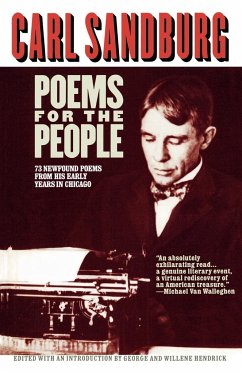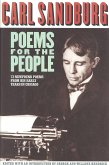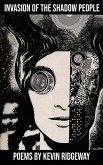In the winter of 1914, Carl Sandburg, then a reporter at The Day Book in Chicago, submitted several of his poems to Harriet Monroe's Poetry magazine. The title poem began: "Hog Butcher for the World, / Tool Maker, Stacker of Wheat..." Monroe at first hesitated to accept the poems because of "their unorthodox form and their range from brutality to misty lyricism." But she took a deep breath and printed them. In the decade that followed, Sandburg came quickly to national prominence. In Poems for the People, George and Wilene Hendrick, Sandburg's most accomplished interpreters, have selected seventy-three poems from his early years in Chicago, almost all of them never before in print. Included are poems of social protest, gentle ruminations, and poems about teeming Chicago life. Sandburg may have regarded them as too radical for the time; others may have been set aside and never retrieved. This unearthed treasure, together with the Hendrick's biographical introduction and commentary on the poems, mark Poems for the People as a major publishing event.








